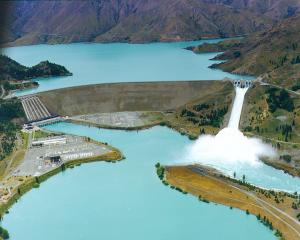More irrigation on the Waitaki Plains may increase nitrate and nitrogen levels in water, but management plans individual farmers had agreed to implement would reduce the effects, an Environment Canterbury hearings panel in Oamaru was told yesterday.
The panel of three commissioners is considering 35 applications filed by 18 individuals under the auspices of the Mid River New Applicants Group for water from the Waitaki River between the Waitaki dam and Black Point for irrigation.
Environmental engineer Lynn Torgerson said the increase in irrigation and farming changes would result in minor increases which were still well below guidelines in ground and surface water, including the Waitaki River.
The applicants would be using spray irrigation, which would reduce the effects.
In general, increases were small and none would exceed drinking water or World Health Organisation standards.
"Overall, it is unlikely the groundwater nitrate-nitrogen will increase significantly across the lower Waitaki River catchment," Ms Torgerson said.
Each farm should have a farm management plan, audited and updated regularly, as a condition on any consents.
The plan would reduce nitrate-nitrogen concentrates which could be leached into water, she said.
Hydrologist Dave Stewart said Waitaki River flows were controlled by the demand for electricity, and only dam company Meridian Energy Ltd could predict future flows.
Flows could fluctuate from mean to low flows and back again within a day.
Questioned by panel chairman Prof Peter Skelton, Mr Stewart said the Waitaki Catchment Water Allocation Board, which drew up the allocation plan, had deliberately left open how the 150cumecs minimum should be measured.
It had not said it should be instantaneous, nor set a time period.
Soil and water engineer Ian McIndoe said there were good reasons why irrigation needed to be managed on a 24-hour basis.
There was no provision to easily vary flows.
On-farm, changes could be made to irrigation systems, but usually only once or twice a year because it was labour intensive and time consuming.
"It is practical to turn on-farm irrigation systems off or on on a daily basis, but impractical to do that more than once daily . . . ," he said.












